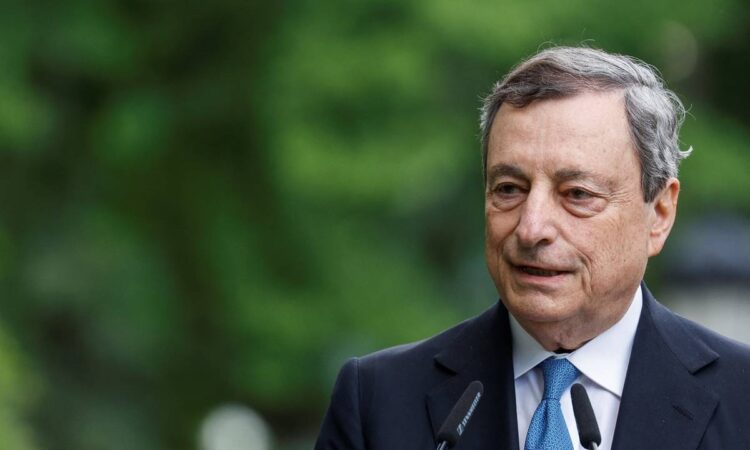
(Feb 24): The European Union (EU) must find ways of financing massive investment quickly to catch up with major shifts in the world order, according to Mario Draghi.
“Many profound changes have taken place in the last few years in the global economic order,” he said on Saturday. “These changes have a variety of consequences, one of which is clear is that we’ll have to invest an enormous amount in a relatively short time in Europe.”
The former head of the European Central Bank (ECB) has been tasked with writing a report on how to make the EU more competitive. He spoke in Ghent, Belgium, where he’s meeting the bloc’s finance ministers, with attention focused on the second anniversary of Russia’s invasion of Ukraine.
The war has pushed defence spending to the top of the agenda as Draghi sounds out member states on ways to boost the region’s economy in an increasingly hostile global environment.
“I’m looking forward to this discussion to know what the finance ministers think and are preparing about how to fund these investment needs,” he said. This includes how to unlock private savings to a greater extent than in the past, he added.
One of the ideas being considered at the two-day meeting is joint EU borrowing to pay to beef up the bloc’s military, following similar moves during the Covid pandemic.
EU Economy Commissioner Paolo Gentiloni told reporters that the experience had shown that using common debt is “a sound way” to deal with crises.
“I don’t see any reason not to continue for common targets to have common funding,” he said.
Draghi, a former Italian prime minister, is due to hand in his findings after European Parliament elections in June.
The bloc faces a long list of spending needs, including the climate and digital transitions, but the war in Ukraine and the prospect of Donald Trump returning to the White House have focused talks on how to boost European security.
“It is clear that the EU will need to pay much more attention to its defence capabilities, to its defence industry capabilities, and we need to work jointly,” European Commission Vice-President Valdis Dombrovskis said.
He added that member states need to invest more, especially given many have not met a Nato target of spending at least 2% of GDP on defense.
“And certainly it will require discussions on what EU-level instruments we can have,” he said.
EIB’s role
Among possibilities being considered, finance ministers on Friday talked about reviewing the European Investment Bank’s (EIB) mandate so the EU’s lender can provide loans to produce arms and ammunition. But while countries including Finland and Lithuania back such an option, others prefer to take more gradual steps, people familiar with the matter said.
The EIB and the commission, the EU’s executive arm, will explore the scope of defence-industry financing under the EIB’s mandate to fund goods with both civilian and military use, without putting at risk its top credit rating, the people added on condition of anonymity because the discussions were private.
“The EIB has been active for the past eight years in the area of security and defence, we’re ready to do more and better,” EIB President Nadia Calvino told a news conference in Ghent on Friday. “Protecting our AAA and our very solid financial position is obviously a shared priority, which needs to be preserved.”
Still, some ministers underscored the need to explore all available options.
“I would want to emphasise and remind people of a simple truth: if we want to protect ourselves and expand the defence industry, defence spending must be increased,” Estonian Finance Minister Mart Vorklaev told Bloomberg.
He added that the EIB’s legal texts should be changed if needed for it to “fulfil its role even better”.






